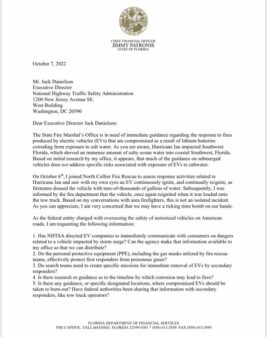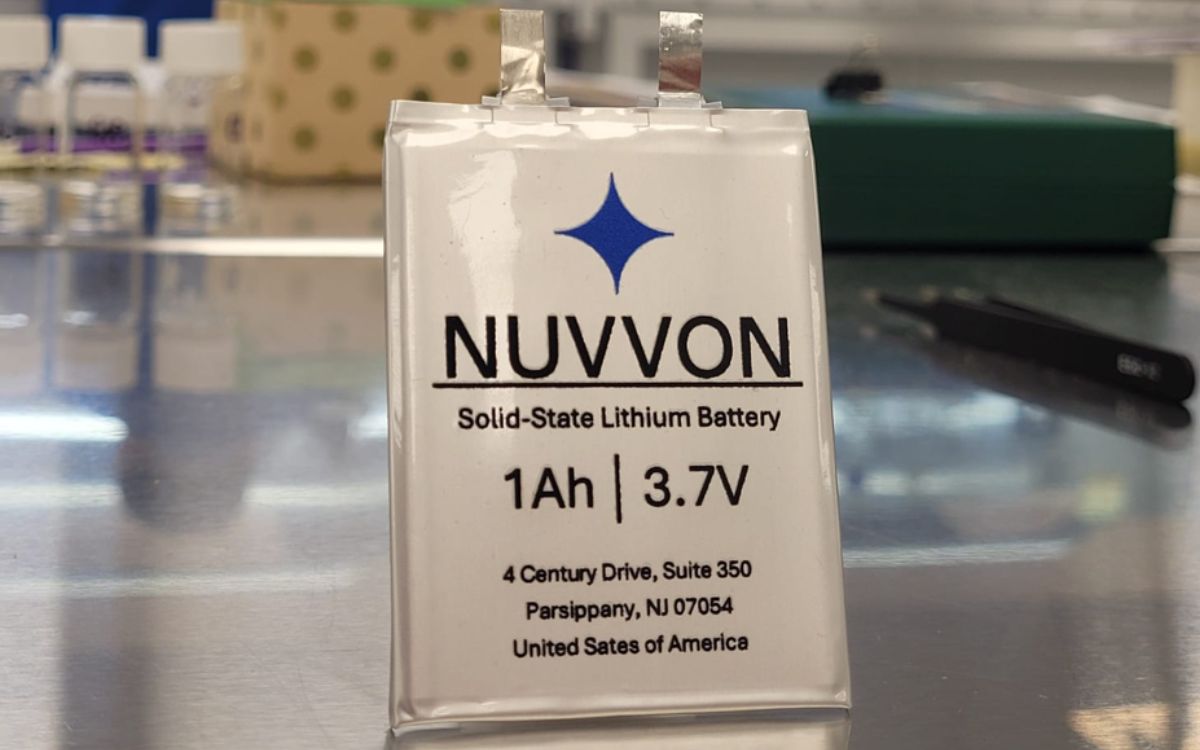Florida’s chief financial officer and state fire marshal has written to the National Highway Traffic Safety Administration (NHTSA) saying salt water reacting with batteries in EVs may be a “ticking time bomb” and cause more fires.
Jimmy Patronis said in a statement there would inevitably be more fires following Hurricane Ian as lithium batteries corroded as a result of exposure to salt water. There are large numbers of damaged or submerged EVs following the storm.
“I…saw with my own eyes an EV continuously ignite, and continually reignite, as fire teams doused the vehicle with tens-of-thousands of gallons of water. Subsequently, I was informed by the fire department that the vehicle once again reignited when it was loaded onto the tow truck.
“Based on my conversations with area firefighters, this is not an isolated incident. As you can appreciate, I am very concerned that we may have a ticking time bomb on our hands.”
He said initial research by his office suggests that much of the guidance on submerged vehicles does not address specific risks associated with exposure of EVs to salt water.
He asked whether:
- the NHTSA had directed EV companies to immediately tell consumers of dangers related to a vehicle impacted by storm surge
- the personal protective equipment, including gas masks used by fire rescue teams, effectively protect from poisonous gases
- search teams need to arrange immediate removal of EVs from incidents.
He also requested guidance on where compromised EVs should be taken to burn out.
He said as state fire marshal, he must ensure local fire teams have all the equipment needed and concluded: “Your responses may be the difference between life and death.”












